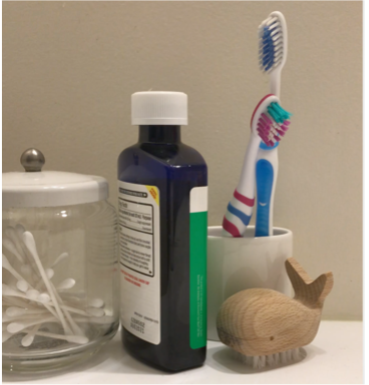Flu Season During COVID-19: How to Make Sure You and Your Teen Are Prepared
From pumpkin picking to planning special occasions with family and friends, there’s always a lot to look forward to this time of year. But, as you dig out your sweaters and flannels to prepare for the colder months ahead, are you also prepared for flu season and all it brings?
Though we experienced a mild flu season in 2020 due to lockdowns, social distancing, mask wearing, and other restrictions brought on by COVID-19, health experts are anticipating things will be different this year. As many places across the country relax pandemic safety measures, the flu is more likely to be transmitted with people returning to schools and workplaces as well as attending larger social gatherings.
Between the flu and other common respiratory viruses that tend to arise in the fall and winter months, you’ll likely find yourself stocking up on over-the-counter (OTC) cough, cold and flu medicines to prepare for those inevitable fevers, sniffles, and coughs. When it comes to your medicine cabinet, however, it’s important to be aware that teens might be tempted to misuse these types of medicines to get high.
So, how can you properly prepare for flu season while simultaneously mitigating OTC medicine misuse in your household? We’ve pulled together a few tips:
 1. Get Your Flu Shot
1. Get Your Flu Shot
While much of the focus has been on COVID-19 vaccines, don’t forget your annual flu shot. Getting a flu shot is more crucial this year than ever before. Consider making plans to go with your teen – you might find that something seemingly as mundane as getting a flu shot can help to not only protect yourself and those around you – but could also be a great time for some of those important conversations – see tip #2! Find out more about the flu vaccine, here.
2. Talk with Your Teen
Awareness begins with open conversations, and cold and flu season presents a natural opportunity to have an open dialogue with your teen about medicine misuse. In fact, when parents have discussions with their teens about the dangers of substances early and often, teens are 50% less likely to use drugs than those who do not receive these critical messages at home. Even if you think your teen is well-aware of the risks of substance use, it is always the right time to reaffirm the message. Need help getting the conversation started? Here are 13 tips for conversations with your teen.
3. When You’re Stocking Up on the Medicines You Need, Look For the “Stop Medicine Abuse” Icon
We are all used to looking for recycling symbols on plastic bottles and tags that tell us how to wash our clothes, but do you know what the Stop Medicine Abuse icon looks like when browsing the cough and cold medicine aisle? Knowing what to look for – and where to look – helps you understand which products contain dextromethorphan (DXM), which is the active ingredient in most OTC cough medicines that teens can misuse to get high. Want to study up on this icon? Learn more.
 4. Take Regular Stock of Your Medicine Supply at Home
4. Take Regular Stock of Your Medicine Supply at Home
Keep track of what’s in your medicine cabinet and learn how to safely dispose of expired or unwanted medicines. Safeguard the medicines in your home by taking inventory of what and how much you have, so you will know if anything goes missing without explanation. Be sure to also monitor your teen’s behavior for warning signs of medicine misuse.
All-in-all, the fall and winter months bring us together and create opportunities for lasting memories, but this time of year also presents the opportunity to have important conversations around OTC medicine misuse with your teen. For more information on how to help ensure the health and safety of your teen, household, and community, check out our guide to preventing substance use and medicine misuse.
Take Action
Increased awareness can only mean increased prevention. Join us in the fight against teen cough medicine abuse by exploring and sharing our free resources.
